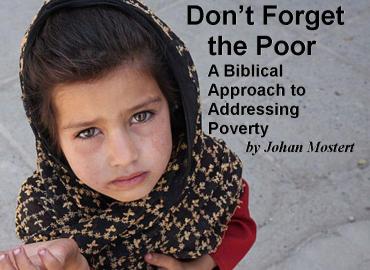Presenting the Beautiful Gospel: Ten Theses about Contemporary Christian International Mission and Cross-Cultural Evangelization
Moreover, because of the complexity of transmitting the message of the Gospel to a culture where Christ was not formerly known and to a people of different values than those of the Christian missionary, it creates a problem for the missionary to find the appropriate evangelistic strategy and missional method to bridge walls of division and isolation, to establish genuine human interactions and relationships, and ultimately, to share effectively the message of God’s saving grace, loving-kindness, and compassion. The insensitivity and ignorance of the Christian missionary to the culture of the non-Christian is another hindrance to the effective interpretation and proclamation of the Gospel. The presentation of the Gospel requires boldness, audacity, but not forceful conversion; by consequence, the messenger should not compromise the message, undermine the reality of human sin and oppression, and reciprocally, he/she should not negotiate the distinctive demands of the Gospel and the truths about God revealed in the character and deeds of Jesus Christ. The beauty of the Gospel lies in the person and saving work of Jesus Christ, and his message of grace, love, peace, and fraternity. It is never about the missionary’s wisdom, strength, and persuasion.
In summary, I articulate ten propositions regarding the attitude and actions of Christian missionaries engaging in international missionary endeavors and cross-cultural evangelistic activities and projects.
- It is God who is the ground of human hope and Jesus Christ the light of cultures and the nations; it is not the culture of the missionary and certainly not the strength and resources of the missionary’s country.
- The Christian missionary should not confuse the power of the Gospel with the political power of their native land. Because of human greed and the longing of one nation to dominate or subdue another nation, the workings of the political power of nation-states often leads to further human suffering and death, estrangement, and alienation.
- The value and worth of the people the Christian missionary is called to reach do not lie in their knowledge of your own culture nor should you continually attempt to forcefully impose your culture upon them as if assimilation to your own culture is a prerequisite to salvation in Christ and the effective understanding of the Gospel.
- In the same line of thought, the value and worth of the people you are commissioned to reach is not dependent upon them knowing your native (Western) language, as you may already and falsely assume that your language is far more superior than theirs. In fact, it will be more beneficial to your missionary outreach and effectiveness if you take the time to learn their language well and become proficient in it. You are “the sent one” and “the commissioned one.” It is not the other way around.
- Become more culturally intelligent about suffering. While human sin and unrighteousness may bring about all forms of human suffering and destruction, opening opportunities to share the good news, be careful how you discuss suffering. Interpreting death and destruction as God-given opportunities to engage in Gospel-conversations may be perceived as the missionary rejoicing in the suffering and death of the people they are trying to reach. Certainly, without postulating a spirit of patronizing, there is an honorable way to discuss the hard life and economic poverty of the target people without undermining their worth and dignity—as they are also created in the Image of God.
- The Christian missionary should develop a positive attitude toward the people they are called to evangelize and correspondingly, the messenger-missionary should foster a relationship of respect, mutual reciprocity, friendship, care, and interconnectedness. The alienated missionary is not a relational human being nor will they be an effective servant of God in any culture.
- The Christian missionary ought to know that the saving power of the Gospel and the effective proclamation of Christ to a culture in desperate need of God’s intervening grace and redemption does not depend upon the missionary’s rhetoric of manipulation, fear, and aggression as they relate the message of the Gospel to the non-Christians.
- The Christian missionary should know that the non-Christian is entitled to the exercise of religious freedom and right of his or her own religious tradition, and the deliberate practice of such a given faith. God is bigger than religious traditions, and the saving power of Christ transcends all religious authorities, rituals, and practices. Christ saves; religions do not!
- It is not the conversion from one religion to another one that brings God’s salvation to the individual; Christ alone is the Redeemer of the human soul. The fundamental philosophy of biblical conversion and Christian mission is to make known the distinctive qualities of the person of Christ and the infinite value of his cross resulting in genuine repentance from and forgiveness of sins to the total surrender of the person’s life to God and the Lordship of Jesus Christ.
- The end of Christian conversion is not to make new religious converts or proselytes, but to make genuine and permanent followers of Christ of all nations, cultures, and ethnic groups.
PR
Further Reading:
 Johan Mostert, “Don’t Forget the Poor: A Biblical Approach to Addressing Poverty”
Johan Mostert, “Don’t Forget the Poor: A Biblical Approach to Addressing Poverty”
What has God called you to do? In this chapter from Your Call to Work & Mission: Following Jesus 24/7, Johan Mostert challenges all followers of Jesus to remember those trapped in poverty and take practical steps to demonstrate God’s love for them.
 Jim Harries, “Shadow Boxing: The Missionary Encounter with Christian Theology in World Religions”
Jim Harries, “Shadow Boxing: The Missionary Encounter with Christian Theology in World Religions”
Missionary-scholar Jim Harries investigates whether the term “world religion” is a Western construct and points us toward a new way of sharing the story of Jesus that is free of this stricture.
Category: Ministry, Spring 2018


